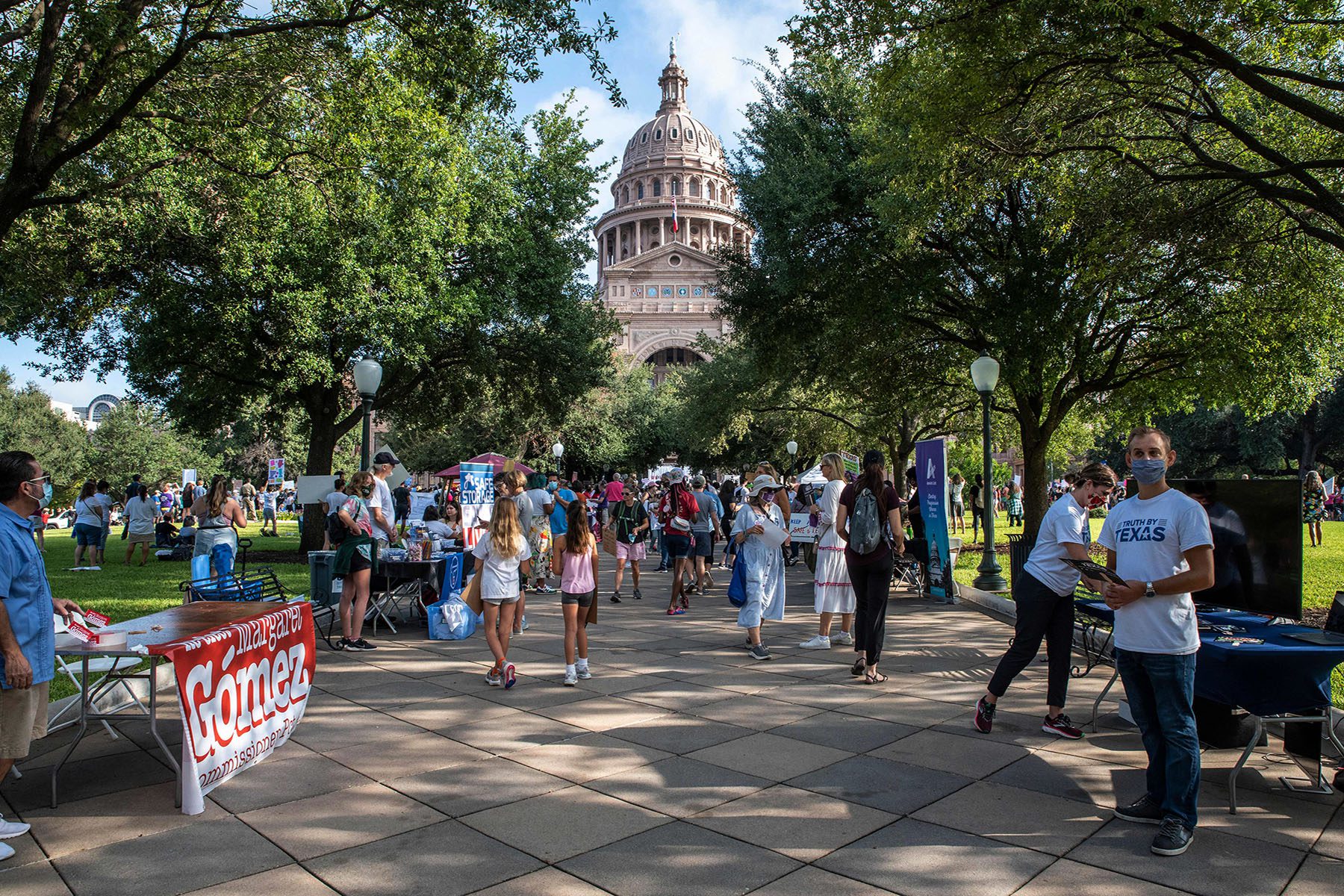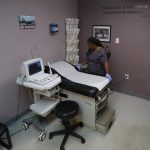For about 48 hours last week, abortions after six weeks were once again legal in Texas.
Reproductive rights advocates hailed that window, the result of a district court ruling that was soon blocked, as a rare, if short-lived victory against Senate Bill 8, which has ended abortion access past six weeks of pregnancy and inspired copycat legislation across the country.
But the reality was more complex. Technically, the injunction, which was issued the night of October 6, meant clinics could provide abortions after six weeks. But the state government almost immediately appealed to the conservative U.S. Court of Appeals for the 5th Circuit, which has a history of supporting abortion restrictions. And if the 5th Circuit blocked the district court’s ruling — as it did two days later, late on a Friday night — anyone who had performed an abortion after six weeks could still be sued under the law.
“It was a bit confusing and a bit chaotic for sure,” said Marva Sadler, director of clinical services at Whole Woman’s Health in Fort Worth, one of the largest abortion clinics in Texas. “I think people thought we’d be able to run in and do as many abortions as we could in that time frame.”
Clinics did provide a handful of abortions past the six-week mark in that 48-hour window. But SB 8 was only one of numerous restrictions around abortion access in Texas. Critically, the state requires anyone seeking an abortion to wait 24 hours between an initial doctor’s visit and then the actual abortion.
As a result, even after the injunction came down, patients who were beyond six weeks couldn’t simply run in the next morning for an abortion.
Across Whole Woman’s Health’s four clinics, fewer than 10 patients were able to receive abortions after six weeks, Sadler said.
A staffer at a Texas Planned Parenthood, who asked to be identified as I.O. for fear of potential legal repercussions under the Texas law, told The 19th that when SB 8 was paused, her clinic immediately “tried to reach every single person we could reach out to” from a list the clinic had maintained of patients in need of care who could not get it under SB 8.
After first consulting with their lawyers on Thursday, Planned Parenthood staff began making phone calls to patients who had already been seen for an initial ultrasound to date their pregnancy — and begin the 24-hour waiting period mandated by the state — on Thursday night and Friday morning, asking them to come as quickly as possible to the clinic for care.
“If you need help, come in Friday,” I.O. says of the call she made again and again Thursday night and Friday morning. She says the clinic where she works did everything they could think of to contact those who they had previously been unable to help, to just get them into the clinic itself as early as possible on Friday morning.
Seven patients were able to come right away on Friday morning, and clinic staff began seeing people at 11:45 a.m. that morning, all of whom had detectable cardiac activity in their ultrasounds. I.O. even had a family member of her own who had tried to access abortion care the previous week and had been unable to do so; she immediately called that relative and told her to come to the clinic as soon as she could.
And when the clinic opened on Friday, “it was packed,” I.O. said. “It was packed to capacity. We literally had people standing up in a corner.”
But Saturday morning was a different story. When the health center opened to another packed lobby that day, Planned Parenthood staff in Texas had to tell everyone waiting that they would have to leave as a result of the 5th Circuit’s emergency temporary stay.
At the clinic, things returned to the post-SB-8 normal: Only 8 of the 23 patients who had been scheduled for that day did not show cardiac activity on their ultrasounds and were thus able to proceed with their abortion appointments. Twelve patients had their appointments cancelled after finding out they were too far along in their pregnancies to access this care, and of the 11 still eligible, an additional three were barred from accessing abortion procedures because the 24-hour waiting period had pushed them past the legal limit of when they could access care.
I.O. said that she and her colleagues tried to explain, one on one, to as many people as they could, what was going on with the legal action, and why it halted the care they thought they were going to once again be able to provide.
“We had to go to all those patients that were waiting, that we had told to come in now, and tell them now we cannot see you because of the simple fact that the [case against] the law was appealed,” I.O. said. “We called and said that we could help them and then we couldn’t. They were upset. They were pissed.”
Whole Woman’s Health was able to provide some abortions Thursday morning, mainly with patients who had previously undergone the state-mandated consulting, even though they were past six weeks in their pregnancy.
The clinic had indicated to them earlier that an injunction might be a possibility. Those patients had taken a chance, hoping that a favorable court ruling might temporarily block the law and allow them to come back for an abortion.
There was a “burst” of calls Thursday morning, Sadler said. Patients who had previously been turned away emailed asking if it was possible to schedule an abortion after all. On Thursday, more patients came in for counseling and to schedule abortions for Friday.
But patient demand was only one piece of it. At Whole Woman’s Health, some physicians agreed to resume providing abortions after six weeks while the Texas law was blocked. But a larger group of doctors indicated they would only feel comfortable if and after the U.S. Supreme Court had weighed in, Amy Hagstrom Miller, the clinic’s founder and CEO, said on Thursday. Hagstrom Miller declined to specify how many physicians resumed performing abortions after six weeks, citing the fear of potential lawsuits directed against them if she provided any identifying details about who performed abortions and at which clinics.
It’s not yet clear when the 5th Circuit will hear arguments about the Texas law, or further weigh in on its constitutionality.
Sadler was sitting by the phone when she learned that once again, Texas’ six-week ban was back in effect. She was preparing to call a woman who had come in Friday for an initial visit, and who had planned to come in for an abortion the next morning.
“I’m worried about her continuing the pregnancy very much longer at all,” Sadler said.
The patient, who is further than six weeks along, has a heart condition that elevates the risk of carrying her pregnancy to term. She has several small children and a limited support system — if she cannot get an abortion in Texas, traveling out of state isn’t on the table.
“It was absolutely horrible. She was devastated,” Sadler said. “She knew it was a possibility, and we had prepared her for it. But she was absolutely devastated and still at this point is trying to figure out what to do.”
Correction: A subhead on an earlier version of this article misstated who was able to obtain an abortion during the 48-hour window.





